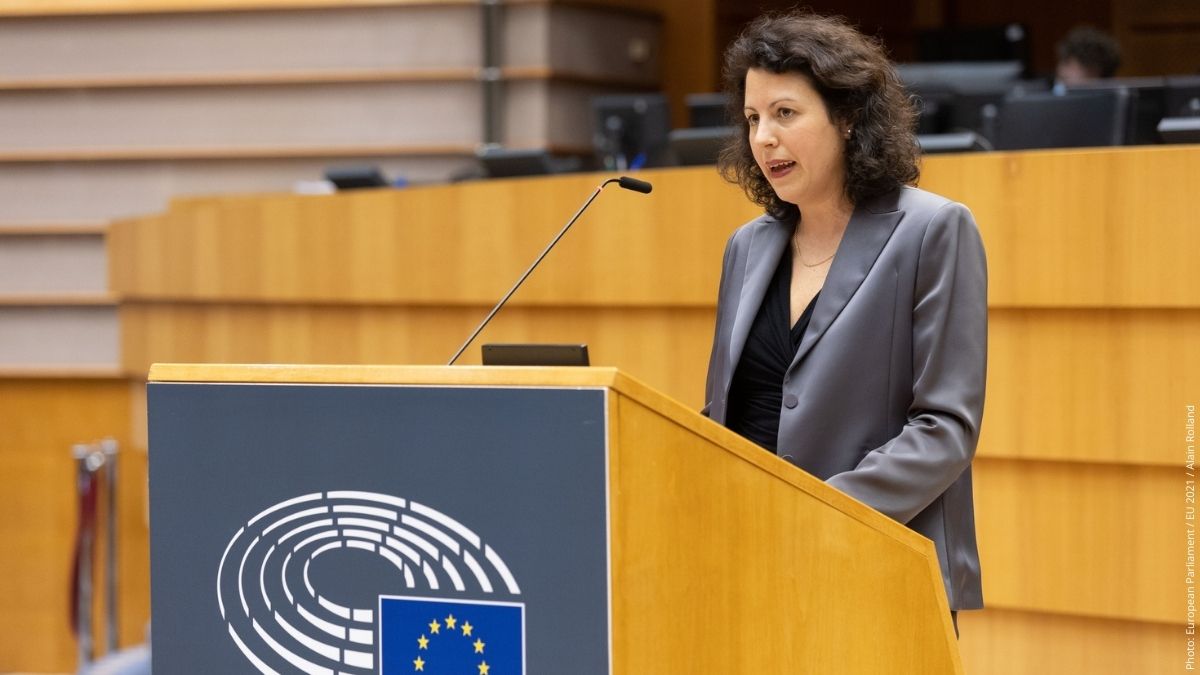
31 März Kritik an neuer Dual-Use-Regelung: Lückenhafte Verordnung hilft den Menschenrechten nicht!
This article is unfortunately only available in German.
Brüssel, 31. März 2021 – Das Europäische Parlament hat in der vergangenen Woche der neuen Ausfuhrbestimmung für sog. Dual-Use-Güter zugestimmt. Dual-Use-Güter sind ursprünglich für den zivilen Gebrauch entwickelt worden, können potenziell aber auch für terroristische Akte oder zur Unterdrückung von Menschenrechten missbraucht werden. Die neue Ausfuhrbestimmung soll durch strenge Export-Regeln etwaigen Missbrauch in Drittstaaten verhindern. „Diese Verordnung ist leider nur ein Pyrrhussieg, der die wesentlichen Schutzkriterien nicht garantieren kann“, kritisiert Manuela Ripa, EU-Abgeordnete der ÖDP, das Abstimmungsergebnis.
„Diese Verordnung bringt kaum sinnvolle Verbesserungen, da nur uralte Technologien berücksichtigt werden und so den Export von modernen Überwachungssystemen kaum einschränkt. Das Hauptproblem sind die Definitionen von „Güter für die digitale Überwachung“ und die „Catch all“ Klausel: Beide Definitionen sind lückenhaft, da sie nur verdeckte für Überwachungssysteme gelten. Da die meisten Überwachungssysteme aber nicht verdeckt, sondern offen sichtbar eingesetzt werden, greift die Verordnung hier nicht – beispielsweise bei Überwachungskameras oder der Technik, die für das Erstellen von Telefonabrechnungen eingesetzt wird. Anders angewendet können mit dieser Technik auch Telefongespräche aufgezeichnet werden“, stellt Manuela Ripa klar.
Diese Verordnung ist leider nur ein Pyrrhussieg, der die wesentlichen Schutzkriterien nicht garantieren kann
Mit der Dual-Use-Verordnung soll der Export von Technik, die auch zu Menschenrechtsverletzungen eingesetzt werden kann, strenger überwacht und kontrolliert werden.
— Manuela Ripa, MEP (@RipaManuela) March 25, 2021
Doch dieser Gesetzentwurf hat entscheidende Lücken. Welche? Das erkläre ich in meiner Plenar-Rede 👇#EPlenary 1/2 pic.twitter.com/PdlD9twQYO
Nachdem die EU-Kommission 2016 den Entwurf für die Dual-Use-Verordnung vorlegte, um Exporte von Überwachungstechnik an autokratische Regime einzuschränken, konnte Prof. Klaus Buchner, damaliger EU-Abgeordnete der ÖDP, als zuständiger Berichterstatter in der ersten Lesung den Gesetzesvorschlag für einen verbesserten Schutz von Menschenrechten verschärfen. Für seine Arbeit erhielt er 2018 eine deutliche Mehrheit im EU-Parlament. Nachdem Prof. Klaus Buchner in 2020 sein Mandat an seine Nachfolgerin Manuela Ripa übergab, wurden die Verhandlungen jedoch der Fraktionskollegin Markéta Gregorová zugeteilt, statt es – wie normalerweise üblich – der Nachrückerin zu überlassen.
„Ich finde es mehr als bedauerlich, dass die deutsche Ratspräsidentschaft die Dual-Use-Verordnung auf Biegen und Brechen schnell aber lückenhaft zu Ende bringen wollte, nachdem der Rat die Verhandlungen jahrelang blockiert hat: Eine lückenhafte Verordnung hilft den Menschenrechten nicht! Zwar konnten einige Kernunkte meiner Fraktion in den finalen Text eingebracht werden, doch alle guten Errungenschaften bringen nichts, wenn kritische Dual-Use Produkte überhaupt nicht von der Verordnung erfasst werden. Unsere Hoffnung ist jetzt, dass die EU-Mitgliedstaaten durch schärfere nationale Gesetze einige der Lücken schließe können“, kommentiert Manuela Ripa abschließend.

